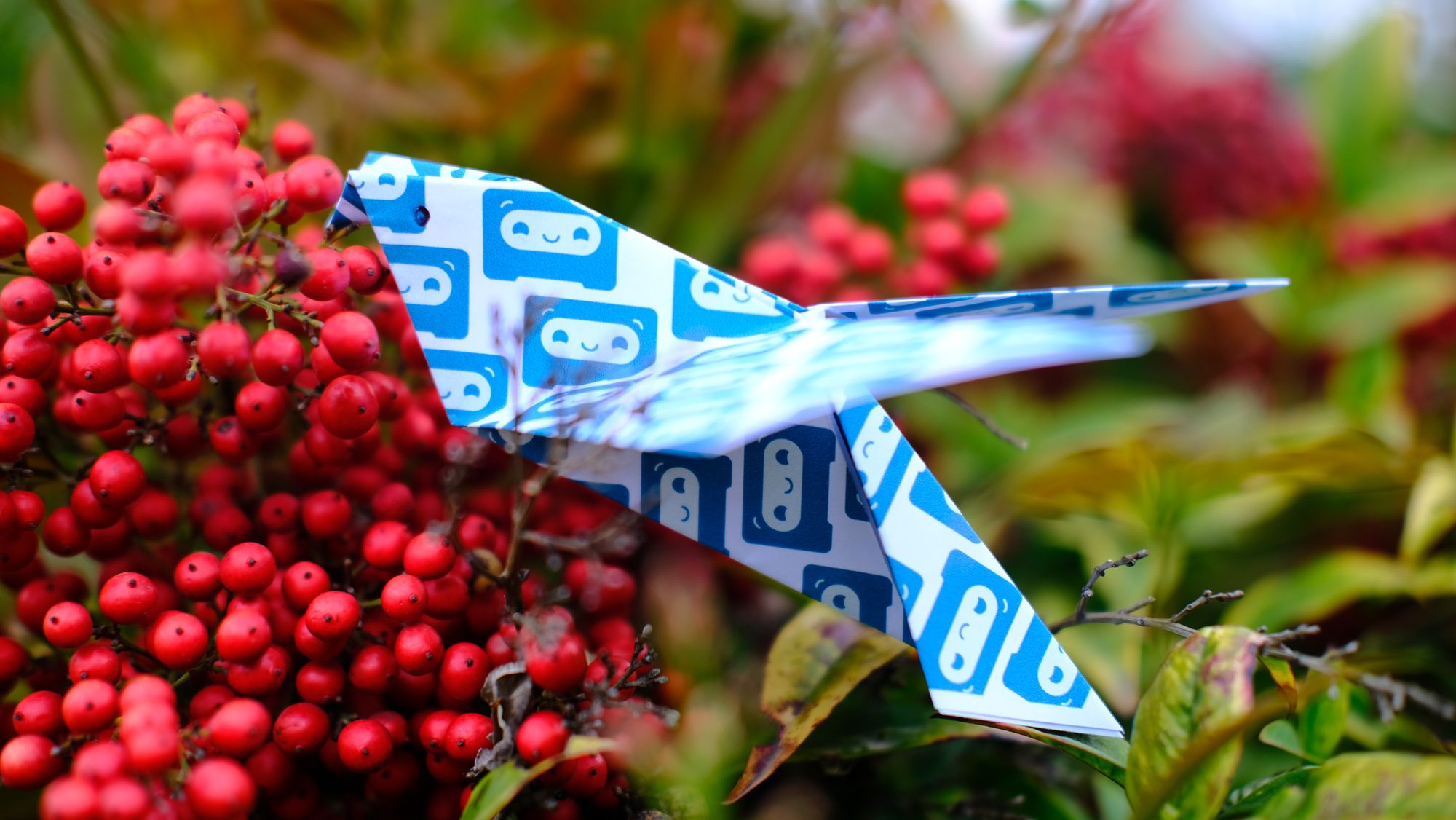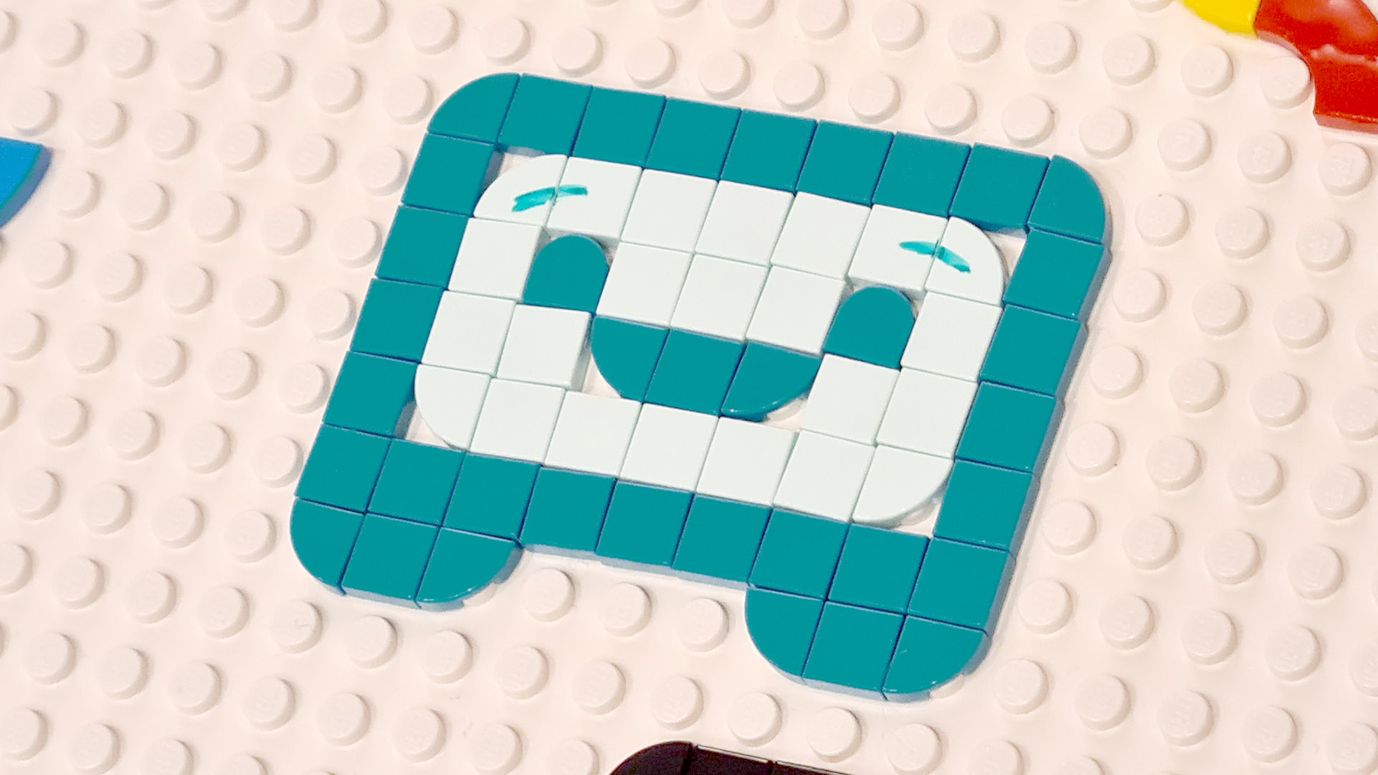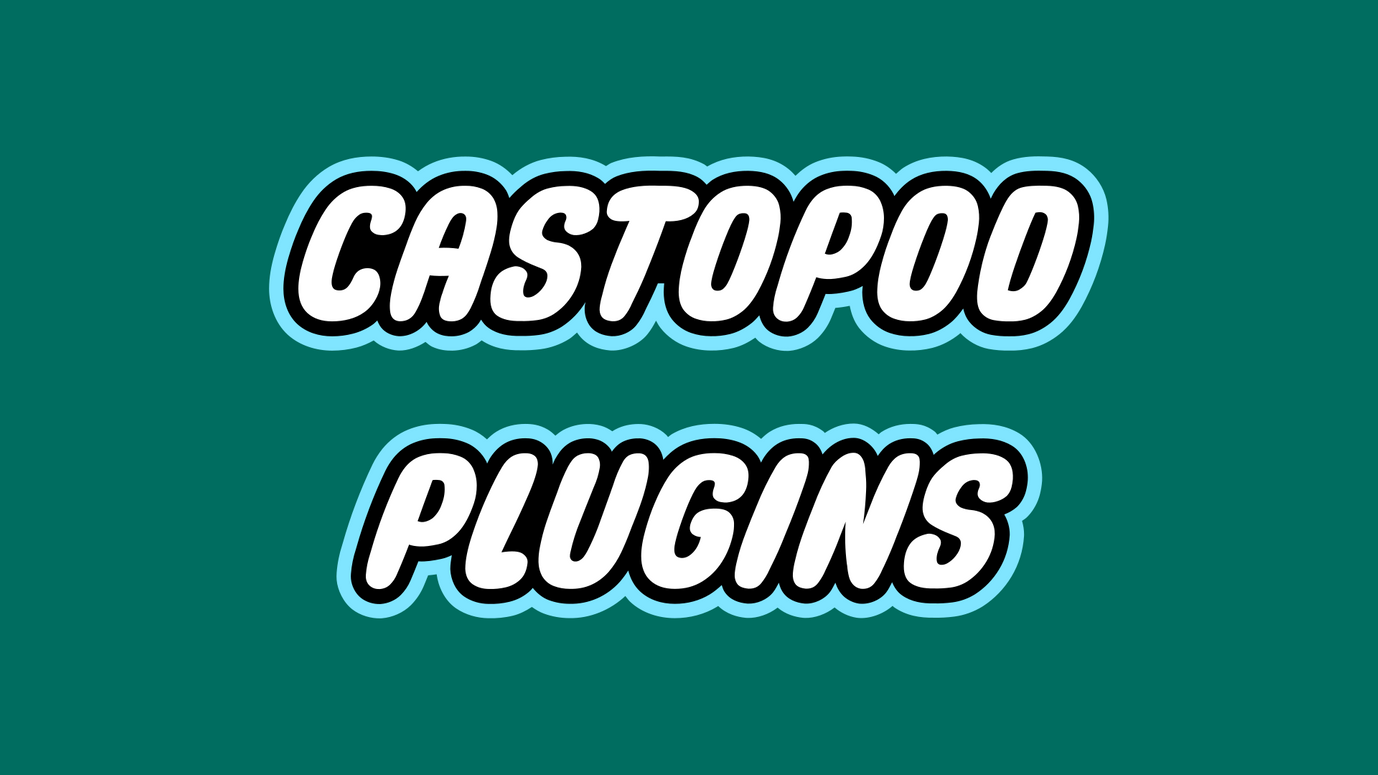
Castopod: the voice of the Fediverse (Interview with Framasoft)
Framasoft asked us a few questions about Castopod and the Fediverse. Here is an English translation of the transcript.
Framasoft is a French nonprofit organization mainly focused on free software valorization. It is divided into three main branches of activities based upon a collaborative model: promotion, dissemination and development of free software, and enrichment of the free culture movement and online services. (Source: Wikipedia)
🇫🇷 You may find the original interview (in French) by Frédéric Urbain on Framablog: “Castopod : la voix du Fédivers”.
Frédéric: Good morning!
According to a Médiamétrie survey released in September 2020, “Key figures on podcast consumption in France”, more than 75 million podcasts are downloaded each month in France by more than 12 million people. This phenomenon has conquered the entire Gaul. Is that all? Nope! There remains at least one irreducible who has been missed: me!
Today we interview Benjamin who is involved in the podcasting ecosystem.
Hello benjamin! Can you introduce yourself?
Benjamin: Hello Frédéric. My name is Benjamin Bellamy, I was born long before social media but after punch cards and I stepped into the computer world at a very young age. I've been listening to podcasts for quite some time, and so two years ago, I, alongside my three partners, created a company exclusively dedicated to that: Ad Aures.
Frédéric: And can you present Castopod? What is it? A software? A platform? A bird? A rocket?
Benjamin: Well, it's a little bit of each! First of all, it is a software coded in PHP that allows anyone to host several podcasts. Once in place — i.e. five minutes after unzipping the package and launching the installation wizard — it is a multi-podcast and multi-tenant hosting platform! Also, not many people know this, but if you print the Castopod source code on a sheet of paper you will get a magnificent bird! About the rocket, I have to confess, our team is considerably behind schedule and nothing is ready yet...
More seriously, Castopod allows anyone to publish their podcasts so that they are available on any listening platform: Apple Podcasts of course, Google Podcasts, Deezer, Spotify, Podcast Addict, Podfriend, Overcast,… so really everywhere. Castopod provides everything you need: audio file management, metadata (titles, descriptions…), RSS generation, video clip export, audience analytics…
In fact, Castopod is suitable for both amateur podcasters and more experienced professionals: on the same instance (i.e. on a single installation) you can have as many podcasts and user accounts as you want.
Lastly, Castopod is open-source, free (as in free beer and free speech), and it promotes and integrates open initiatives such as “Podcasting 2.0” which allows, among other things: transcriptions and closed captions, funding links, chapters, geo-located contents, person management, cross-platform comments, etc.
Frédéric: What prompted you to launch Castopod?
Benjamin: You mean "Who"? Well in a way, Framasoft did! In March 2019, when I was looking for a "Fediverse-connected" Podcast platform, I contacted Framasoft to find out if you were working on this… I was naively convinced that the answer would be "Yes, of course ". But the answer I got was in fact: “No, not at all”. Chocobozzz explained to me that because of PeerTube and Mobilizon developments, Framasoft had no time to focus on another project. By a happy coincidence, that's when Ludovic Dubost (creator of XWiki) told me how he got a grant from NLNet for CryptPad Collaboration suite. So I applied for a grant that was immediately accepted, which, in addition to making us very happy, reassured us about the relevance of the project.
Frédéric: Podcasts tend to be free in most cases, what is their business model?
Benjamin: There are several podcast business models. It is important to note that today 99% of podcasts do not have a model in the capitalist sense of the term, which does not mean that they are “free”: podcasters may get paid in an indirect way. For the pleasure it provides, for the promotion of another product or service, for media exposure, etc. As for the remaining 1%, there are plenty of ways to make money: sell a subscription, ask listeners to give contributions, earn bitcoins per second of listening, add advertisements, produce branded content, insert automatic audio ads, display on-screen ads. At Ad Aures what we do is display contextual recommended ads (so without any cookies nor user profiling).
Frédéric: And what is Castopod's business model? If I tell you that your company is the equivalent of Canonical for Ubuntu, does it upset you? :D
Benjamin: Actually that's rather flattering. We have no claim to become the "Canonical of Podcasting", even if indeed we can see some similarities there. So to answer your question, as I said earlier, Castopod benefited from a European grant, which kick-started developments. Ad Aures, the company that I created with my partners, paid for a share. We also rely heavily on the contributions of all those who would like us to continue to maintain Castopod and make it grow, thanks to the OpenCollective platform. Also, we just launched a "Turnkey" paid hosting offer to allow everyone to use Castopod without having to take care of the slightest technical aspect of hosting: www.castopod.com.
Frédéric: The question that hurts: I know you as a real, very committed open-source advocate, and you're suggesting ads for people's podcasts? Doesn't that contradict your initial stance?
Benjamin: Why would it?! Advertisement and open-source are two totally different things.
But I see what you mean here. I don't consider advertising to be something that is dirty or shameful. What gave it such a bad reputation is the excess of user profiling. Which I do not support…
What we offer is a solution for non-invasive advertisements, without profiling, without cookies, providing ads that are relevant and directly related to the content that hosts them. That allows us to pay content creators. We don't display ads for the latest super-addictive game or the top 10 of things you didn't know you could do with a toothpick and a broom. Instead we can highlight a book directly related to meta-data and audio content, thanks to the concepts that our semantic analysis engine has detected.
Frédéric: How do you get podcasts on your smartphone without filling up your memory?
Benjamin: An average podcast episode is 40 minutes long. At 192kbps the largest files are less than 100MB. If we consider that we are connected most of the time so that we can listen to our podcasts without pre-downloading them, we quickly realize that the required storage space is not really a concern.
Frédéric: When do people have time to listen to podcasts? Doing something else at the same time?
Benjamin: That's the magic of Podcasts! Listening to Podcasts leaves hands and feet and eyes completely free. If you have a look at your average day, you realize that it is filled with opportunities: at breakfast, in your car or in public transport, playing sports, waiting for a meeting, doing your chores (personally I no longer do the dishes without a good podcast)…
Frédéric: What is the ideal length for a podcast?
Benjamin: The ideal length for a podcast is a bit like the ideal length for your legs (= when they both touch the ground). It is a matter of context. Analytics show an average duration of 40 minutes but the ideal duration depends on the situation. The listening context is a decisive criteria: I'm not going to look for the same kind of podcast for my morning coffee and for a 4-hour train journey.
Frédéric: Who produces podcasts? Is there a substantial French catalog?
Benjamin: There are 4 million podcasts. Among them 72430 French-speaking ones (source: PodcastIndex), which means that there are more French-speaking podcasts published every day than there are hours within a day. Even at double speed and without sleep you wouldn't be able to listen to everything. And a peculiarity of the French market is the importance of the radio offer: French listeners love their radio stations, much more than anywhere else in the world. So it's only fitting that they represent a big part in the podcast industry. France also has many very high quality podcast studios. Lastly, and this is the great thing about podcasting, anyone can start a podcast. For an hour, a week, a year or more… My daughter started hers when she was 10!
Frédéric: What do you need to start your podcast in your corner? A good microphone, two or three ideas, Audacity, Castopod, and presto?
Benjamin: The first thing you need is desire, then an idea. And that's all! Any modern phone is capable of recording audio, much better than the overpriced audio recorders of the 80s. So many podcasts are actually recorded with a phone inside a pillowcase…! Of course a good microphone and a good sound card would make a big difference. But technical constraints should not stifle creativity. Regarding editing, you mentioned Audacity. I use it from time to time but I'm more in the “Ardour Team”: Audacity is “destructive”, which means that it is impossible to undo something you did two hours prior, whereas Ardour is… non-destructive: two years after editing you could still make changes. Lastly, regarding hosting, there all kinds of solutions for everyone, but the only one that is open-source, “Podcasting 2.0” certified and connected to the Fediverse is… Castopod!
Frédéric: What are you listening to? Any advice for people who are looking for suggestions?
Benjamin: I have a rather eclectic and not very original selection, I regularly listen to: Podland, Podnews, Podcasting 2.0, The Europeans, Code Source, Décryptualité, Libre à vous, L’Octet vert, Sans Algo… and many radio shows from the French public service when they are not savagely removed from open platforms. 👀
Frédéric: I saw that Castopod was ActivityPub compatible. What does that mean?
Benjamin: ActivityPub is a standard protocol (standardized by the W3C: serious people when it comes to making a standard) which allows all social networking platforms that implement it to connect their content and their users together.
All of these platforms are called “The Fediverse” (contraction of “Federated Universe”). The most emblematic of these platforms is Mastodon — a microblogging platform similar to Twitter — which has been successful since 2017: there are thousands of Mastodon servers and millions of users.
But this becomes even better: the Fediverse is not limited to Mastodon only. Any server, as long as it implements ActivityPub, can come out and play with the others! So from a single Mastodon account, a user can interact with others connected to one or many PixelFed servers (photo sharing, Instagram-like), PeerTube (video sharing, YouTube-like ), BookWyrm (book review sharing), FunkWhale (music sharing, SoundCloud-like), Mobilizon (event organization sharing) and… Castopod (sharing… podcasts!).
Imagine if you could, from your Twitter account, like an Instagram photo, comment on a YouTube video or reshare SoundCloud music! Obviously that is not possible with GAFAMs. Well on the Fediverse it is indeed possible. And it is possible today.
Thanks to the Fediverse, the podcast on Castopod is the social network! Listeners can comment, share, like an episode directly, without any middleman - neither technical nor legal - without any GAFAM nor any private platform in between. No “strike” because you used your right to quote, no blocked account because you used undesirable keywords, no automatic censorship by a bot which can only belch template answers. All this while being available to millions of users on thousands of Fediverse servers.
Let's not be afraid to say it: the future of social media will either be on the Fediverse or there won't be any!
Frédéric: You mentioned “PodcastIndex” and “Podcasting 2.0” several times. What are they?
Benjamin: Allow me to put on my glasses on because this question requires that we talk for an hour about "The History of Podcasting".
Long before iPods, in 1989, “Иллюзия независимого радио” (“The Illusion of an Independent Radio”) paved the way to podcasting, by offering in the USSR audio programs that were broadcasted on cassettes and magnetic tapes.
Much later, in October 2000, Tristan Louis (as his name might suggest, yes he is French) had the idea of including MP3 files in RSS feeds (RSS which was created and promoted by Legends such as Ramanathan V. Guha, Dave Winer or Aaron Swartz…). He created the technology that all podcasts over the world are still using today.
Back then we were talking about “Audioblog”. Then Ben Hammersley, journalist for The Guardian, first used the word “Podcast” in February 2004, a portmanteau word composed of “iPod” and “Broadcasting”.
But it was content that made podcasts known to all (for instance Adam Curry's “Daily Source Code” launched in the summer of 2004) and then the integration of podcasts by Apple in iTunes 4.9 in June 2005.
Then… everything stood still for a whole decade. The History of Podcasting could have ended there.
But in 2014, Sarah Koenig shook up this moribund ecosystem by publishing “Serial”, a podcast with 350 million downloads! This is when a real popular craze for podcasts appeared.
Nevertheless, and despite this revival, in more than 15 years not a single technological innovation was introduced into Podcasting (while the web, at the same time, was revolutionized by broadband connections, smartphones, social networks, cloud computing, etc). Functional and technological status quo. Apple still reigned supreme over its podcast directory and nothing had changed.
But in the summer of 2019, Adam Curry (the same as above) and Dave Jones, unhappy with this situation, decided to launch not one, not two, but three projects in parallel, in order to shake things up a bit.
First, in order to put an end to the dependence on Apple Podcast's index, they created a Podcast Index which they decided to name… PodcastIndex. But whereas Apple Podcast's index requires validation to add any podcast to it but also to read it (which means that Apple has the power of life or death over any listening application which only uses its index), PodcastIndex is open, for both reading and writing. Really open: The PodcastIndex database is freely downloadable, within one click, from the homepage. Without even having to create an account, give your e-mail address, your mobile number or your mother's maiden name. APIs are also freely available for mobile applications. PodcastIndex now references more than four million podcasts (compared to two and a half million for Apple Podcast's index).
Secondly and to make up for lost time, Adam and Dave decide to offer new features by creating new metadata, the "Podcast Namespace", which opens the way to what they call "Podcasting 2.0". Among the many features they promote, for example, transcriptions and closed captions, funding links, value for value, chapters, geolocalized content, persons, and so on. All these specifications for these innovations are available in an open way, on GitHub. Open meaning: read and write.
And this is the third revolution (the word is hardly an exaggeration) that Adam and Dave have brought to Podcasting: they created an open community where anyone can contribute with their “time, talent or treasure”. And it's been going really well! In less than six months — may I remind you that no innovation had shaken up Podcasting in more than 15 years — a bunch of listening apps and hosting solutions (including Castopod of course) joined the movement and integrated all or some of these new features. This community gathers on GitHub, but also on Mastodon, in an eponymous podcast and during super nerdy meetings on Jitsi.
The list of “Podcasting 2.0” compatible applications is available online. This is where — and nowhere else — you should pick your application or your hosting platform now: NewPodcastApps.com
Frédéric: On castopod.org everything is in English! I looked for a small button to change the language, there isn't any! I thought the project was French. Why doesn't that cause Molière's language?
Benjamin: Quite simply because we started with English and we haven't had the time to translate this part yet. But it is coming soon, I promise!
Frédéric: Fortunately the documentation is available in French on docs.castopod.org. I should have started there, there are plenty of explanations.
Benjamin: Yes, the documentation is — as we speak — available in French, English, Brazilian and Norwegian.
Frédéric: Do you need contributors? How do we help?
Benjamin: Castopod is above all an open project! Its code is not the only thing to be open. Not only do we need developers, but also translators, testers, people who will spread the good word (thank you Framasoft! 🙏) and lastly, funding (opencollective.com/castopod).







